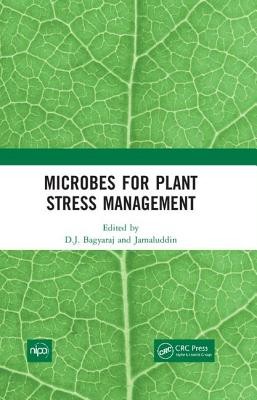
- We will send in 10–14 business days.
- Publisher: CRC Press
- ISBN-10: 0367140713
- ISBN-13: 9780367140717
- Format: 15.2 x 22.9 x 1.9 cm, hardcover
- Language: English
- SAVE -10% with code: EXTRA
Microbes for Plant Stress Management (e-book) (used book) | bookbook.eu
Reviews
Description
It is predicted that the world population will reach about 9.7 billion by the year 2050 and to feed this population the food production has to be increased proportionately. Further we are all concerned about climate which in turn results in abiotic stresses like drought, salinity, etc. These abiotic stresses will seriously affect crop productivity. This approach has gained popularity in the recent years and seems to be a potential option for the future. The present book brings out the role of different groups of microorganisms in alleviating abiotic stress in crop plants.
Please note: This volume is Co-published with New India Publishing Agency, New Delhi. Taylor & Francis does not sell or distribute the Hardback in India, Pakistan, Nepal, Bhutan, Bangladesh and Sri Lanka
EXTRA 10 % discount with code: EXTRA
The promotion ends in 21d.00:24:56
The discount code is valid when purchasing from 10 €. Discounts do not stack.
- Publisher: CRC Press
- ISBN-10: 0367140713
- ISBN-13: 9780367140717
- Format: 15.2 x 22.9 x 1.9 cm, hardcover
- Language: English English
It is predicted that the world population will reach about 9.7 billion by the year 2050 and to feed this population the food production has to be increased proportionately. Further we are all concerned about climate which in turn results in abiotic stresses like drought, salinity, etc. These abiotic stresses will seriously affect crop productivity. This approach has gained popularity in the recent years and seems to be a potential option for the future. The present book brings out the role of different groups of microorganisms in alleviating abiotic stress in crop plants.
Please note: This volume is Co-published with New India Publishing Agency, New Delhi. Taylor & Francis does not sell or distribute the Hardback in India, Pakistan, Nepal, Bhutan, Bangladesh and Sri Lanka


Reviews